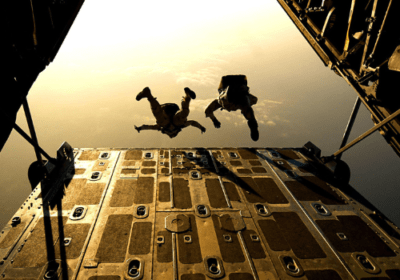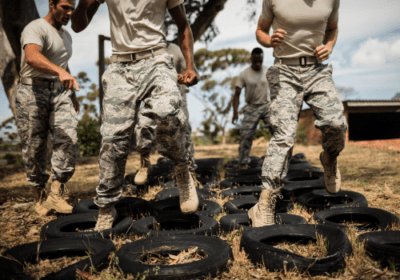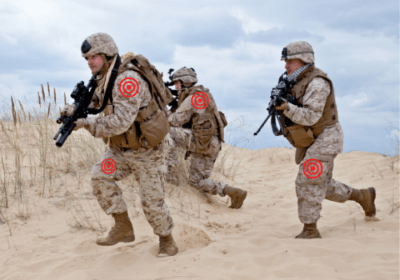Military professionals may find themselves confronting high-stress situations daily, otherwise known as combat stress. Although soldiers today are trained to be tough, it does not mean they escape the everyday stressors experienced by non-military personnel. It often means they may put up more of a fight in specific scenarios than they would under normal circumstances.
Combat stress occurs when military professionals are placed into extreme stress situations, and naturally, their bodies may respond to that stress in various ways. Combat stress is a severe concern for military members today because when the stress is prolonged, it can cause a stress injury. Often, in a stress injury scenario, the body and brain stay in a state of high alert long after the actual danger has passed, which can take a severe toll on both body and mind.

What Causes Combat Stress in Soldiers?
Soldiers today can be exposed to a wide variety of stressors, depending on their role in the military. Stress can be induced by extreme temperatures, intense training, or even physical combat, and the stress can take a significant toll on their bodies and minds.
But what if there was a way to properly monitor a soldier’s vitals to ensure their health and safety? Biosensor technology makes it possible.
What is Biometric Sensor Technology?
Biometric sensors
are custom-designed biofeedback sensors that can be integrated into articles of clothing.
These sensors can monitor several different things, such as:
- Heart Rate
- Respiratory Rate
- Brain Activity
- Muscle Activity
- Speed
- Distance Traveled
For soldiers, biometric sensors could be easily integrated into their uniforms to help monitor their vitals. They make it possible to monitor critical health information from remote locations. When soldiers are exposed to stressful situations, heart rate or respiratory rate may increase This information can then be relayed via a Bluetooth device, even when the soldiers are in the field. Depending on the severity of the stress the soldiers are under, the appropriate actions could be taken to help minimize it.
Other Military Uses for Biometric Sensors:
 Performance Monitoring:
Performance Monitoring:
Biometric sensors don’t just help with monitoring stress levels; they could be used for performance monitoring of military personnel both in training and in combat. Biometric sensors can monitor muscle and body performance. Examples would include monitoring muscle activity or muscle symmetry. By monitoring muscle symmetry, an abnormality in muscle performance can be detected long before you notice it on your own.
Monitoring muscle trends to recognize overexertion or excessive wear and tear on the body can help prevent injuries and allow for planning of appropriate downtime when muscles need to recoup.
Biometric sensors can also monitor military performance by tracking a soldier’s data. Biometric sensors can track speed, acceleration, and distance traveled. All of this information is vital to the military in evaluating high performers for appropriate responsibilities and promotions.
Relaxation:
Electrodes can be designed for electrical stimulation, or e-STIM and TENS. This treatment serves several purposes, such as helping with muscle and nerve recovery. These electrodes can also be used for relaxation purposes. Electric signals can be sent to the brain to help calm the mind and nerves. This could be extremely beneficial, especially for those who may be experiencing combat stress, to help keep their minds and bodies at ease.
Abnormalities in Health:
Biometric sensors
can also be used to monitor spikes or abnormalities in a soldier’s health. By incorporating biosensors into military personnel’s clothing, vitals can begin to be monitored remotely for many hours at a time.

After tracking vitals for an extended period, the software can begin to create a baseline for the soldier. The software works to compare the user’s data with past data to find averages and create a baseline.
Once a baseline has been determined, health can begin to be monitored more closely to look for any abnormalities or spikes. If vitals are seen to be abnormal, the software can call attention to the issue prior to the onset of symptoms and provide a fair warning to treat whatever abnormality is present before it’s too late.
Being a soldier is one of the toughest jobs out there. Having the technology to help assist soldiers is essential to their overall wellbeing and success. Biosensor technology has so many applications and benefits to provide to the military! For more information on biosensor technology, or to get your next project started, contact Butler Technologies!
Request a Call from BTI
Meet the Author: Jaclyn King
Jaclyn is a Marketing Communications Specialist on the BTI Team. She serves as the Content Manager, where she primarily manages social media channels, SEO, Public Relations, and website development. To get to know more about Jaclyn, check her out on LinkedIn